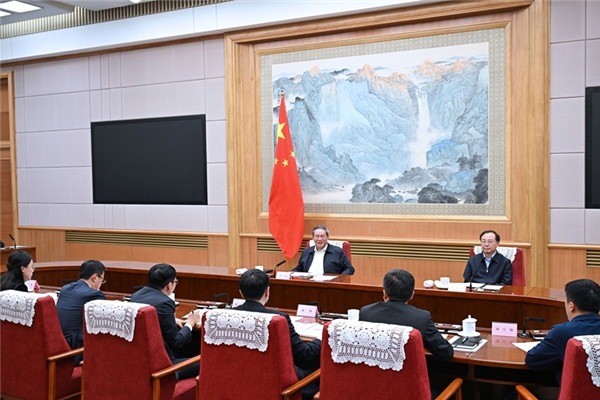Ghana promotes key investment opportunities for Chinese investors

"Every inch of Ghana is ready." The words of Simon Madjie, chief executive officer of the Ghana Investment Promotion Center, resonated across the conference hall in Beijing, capturing Ghana's eagerness to welcome Chinese investors and the surging vitality of China-Ghana economic ties.
The remark came during the Ghana Presidential Investment Forum, held in Beijing on Monday under the theme "Partnering for Prosperity: Unlocking Investment Opportunities in Ghana". The event brought together government officials, business leaders and investors from both sides to strengthen economic and trade cooperation.
In recent years, economic and trade ties between China and Ghana have grown steadily stronger. Yuan Lin, deputy director-general of the Department of West Asian and African Affairs at China's Ministry of Commerce, said the partnership has entered a "fast track" of development. Bilateral trade reached $11.83 billion in 2024, up 7.1 percent year-on-year, underscoring the expansion in scale and the improvement in the quality of cooperation. "The two sides are moving beyond traditional areas such as agriculture to explore emerging sectors including information technology," Yuan said.
As cooperation continues to expand, economic exchanges between China and Ghana are injecting new vitality into Africa's industrial transformation while creating broader opportunities for Chinese businesses. As the host nation of the African Continental Free Trade Area, Ghana offers investors access to a vast and growing regional market. Through its "24-Hour Economy" initiative, the government is driving economic modernization and transformation, encouraging Chinese investments in areas such as infrastructure development, smart city construction, renewable energy, digital connectivity, critical minerals and the electric vehicle value chain.
"Ghana is rich in natural resources and supported by a robust capital market," said Simon Madjie at the forum. He explained that the country's free zones program has become a cornerstone of its investment strategy, offering a wide range of incentives such as exemptions on import and income taxes, double taxation relief, investor support services, and industry-specific subsidies.
Chinese companies are among the most active participants in China–Africa cooperation. Sunda Group, a diversified Chinese manufacturing enterprise, operates nine factories in Ghana producing ceramics, sanitary ware and personal hygiene products. Its flagship brand, Softcare, has become a leading name in Africa's diaper and sanitary napkin market. In addition, Wynca Sunshine Ghana, a subsidiary of Zhejiang Wynca Chemical Group, has invested more than $100 million in the country and built Africa's first modern pesticide formulation plant, emerging as the largest agrochemical supplier in West Africa.
Elizabeth Ofosu-Adjare, Ghana's minister of trade, agribusiness and industry, said China's zero-tariff policy for least developed countries carries special weight amid rising global protectionism. "This open initiative has created opportunities for African products to enter the Chinese market," she said, "and it will help advance industrialization together and build a stronger partnership."
Looking ahead, Wu Yanming, chairman of the China--Africa business council, said: "The foundation of China-Africa cooperation lies with the people, and its vitality comes from businesses. Chinese companies should build on their strengths, deepen local integration, act responsibly, work with partners and pursue steady, sustainable growth."
Zhang Chenxu contributed to this story




































